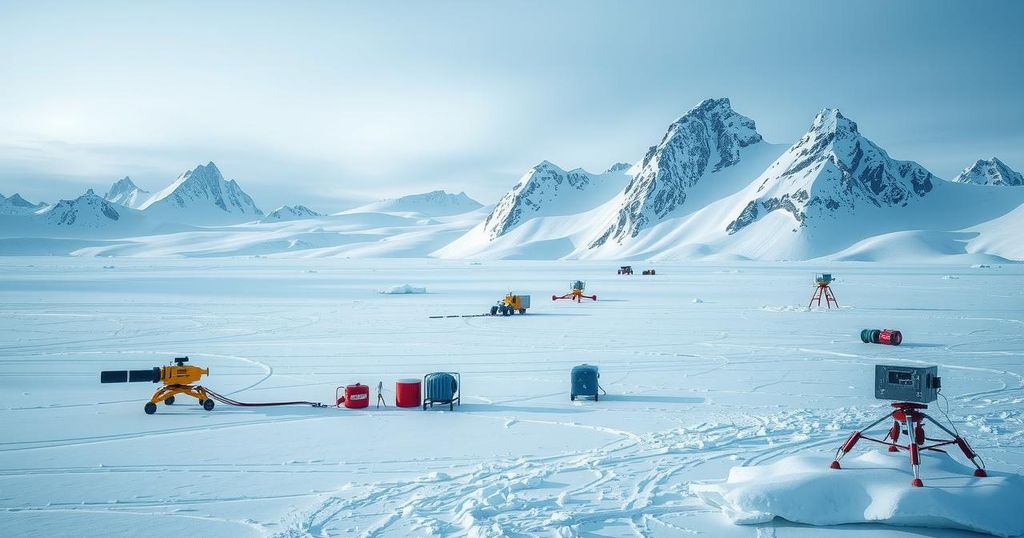Weather
AFRICA, ANTARCTIC, ANTARCTICA, BRITISH, BRITISH ANTARCTIC SURVEY, CANADA, CLIMATE, CLIMATE CHANGE, CONTINENT, DAVID WILLIAM HEDDING, DRON, GLOBAL WARMING, MONTREAL, NORTH AMERICA, RAIN, SANAE IV, SCIENCE, SOUTH AFRICA, SURVEY, WESTERN DRONNING MAUD LAND, WHITE CONTINENT
Stella Nguyen
0 Comments
The Significance of Antarctic Research: Insights from South Africa’s SANAE IV Base
Researchers in Antarctica are primarily focused on climate change, leveraging the continent’s unique environment to study global ecological systems. Approximately thirty countries collaborate at various research bases, including South Africa’s SANAE IV. Significant findings, such as the ozone hole discovery and insights from ice cores, highlight the importance of this research, which faces challenges from extreme conditions and geographic remoteness.
In March 2025, a controversy erupted at South Africa’s Sanae IV base in Antarctica when a researcher alleged that a team member had become violent. The Conversation Africa sought insights from geomorphologist David William Hedding, an experienced Antarctic researcher, to discuss the vital work done in this unique environment and the challenges researchers face.
Antarctic research primarily focuses on climate change, as the continent serves as a crucial indicator for shifts in global ecological systems. Its fragile and extreme climate allows scientists to observe reactions to global changes with minimal human interference. Additionally, Antarctica’s geographic position aids in researching phenomena like space weather, which affects communication technology and human health.
Approximately thirty countries operate research stations in Antarctica, collaborating extensively due to the challenging logistics and limited resources. South Africa’s SANAE IV base typically accommodates ten to twelve researchers and personnel at a remote location in Western Dronning Maud Land, approximately 220km inland. These researchers often stay for about fifteen months, including the harsh winter months.
Significant findings from Antarctic research include the discovery of the ozone hole in 1985 by the British Antarctic Survey, which led to the Montreal Protocol aimed at phasing out harmful chlorofluorocarbons. Additionally, ice core analysis has revealed critical insights into Earth’s climate history by preserving air bubbles that detail atmospheric conditions over the past 1.2 million years, essential for predicting future climate responses.
Scientists face three major challenges in conducting research in Antarctica: remoteness, extreme cold, and continuous daylight. Accessing many study sites is hindered by vast distances from research bases, and the cold limits scientific activities to the short austral summer when conditions are marginally bearable. Although the summer offers 24-hour daylight, this window is fleeting, necessitating diligent planning and collaboration.
Scientific work in Antarctica is vital, as the continent significantly influences global systems. Climate change is projected to cause substantial melting of land-based ice, raising sea levels and disrupting ocean currents, which, in turn, will impact the global oceanic food web. Understanding these changes is crucial for society to build resilience and adapt to the unfolding consequences of climate change.
Antarctic research plays a pivotal role in understanding climate change and its potential impacts on global systems. The collaboration among about thirty countries at various research bases allows for significant discoveries, including the ozone hole and insights from ice core samples. The obstacles faced by researchers, such as extreme conditions and remoteness, underscore the importance of this scientific endeavor to inform society about pressing climate issues and foster resilience against future challenges.
Original Source: allafrica.com




Post Comment